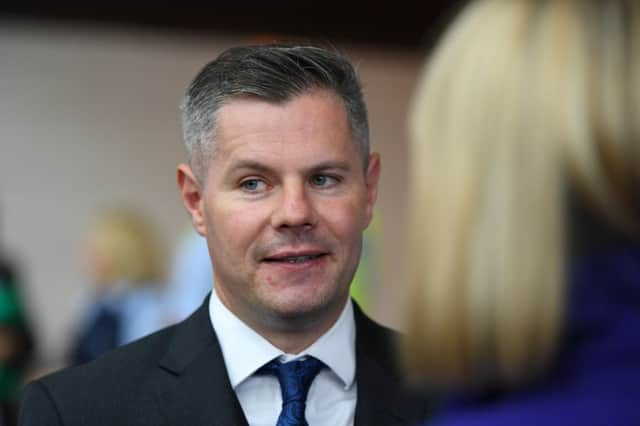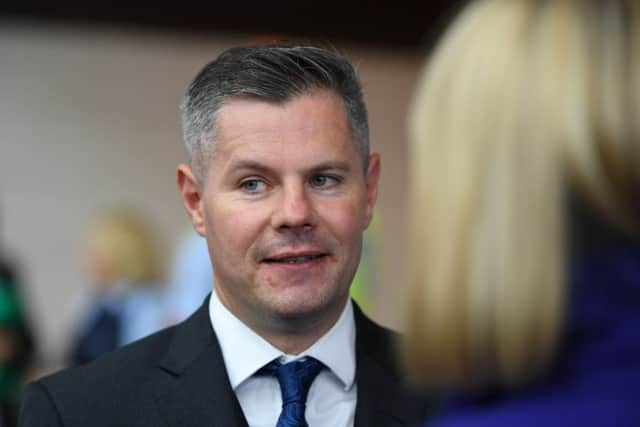Scots tax cut to match Philip Hammond pledge would cost £1bn


And there is a warning Scots may be facing further tax hikes anyway if the Scottish Government is to meet ambitious policies to reduce child poverty and improve attainment in schools.
The Institute for Public Policy Research (IPPR) in Scotland has drawn up analysis following Chancellor Philip Hammond’s decision in the Autumn Budget to bring forward plans to raise the threshold at which workers start paying the “higher” 40p rate to salaries of £50,000.
Advertisement
Hide AdAdvertisement
Hide AdIn Scotland, the SNP Government recently overhauled the system of tax bands and the higher rate, set at 41p north of the Border, starts at a lower salary of £44,840. It has prompted concerns of a growing “tax gap” between Scotland and the rest of the UK, with suggestions Mr Mackay may raise the Scottish threshold in line with inflation when he sets out his budget in a fortnight.


The Scottish Tories are opposed to any gap and fear the existing set-up could drive away “wealth and investment”.
The analysis produced by IPPR Scotland warns this would mean a tax gap of £280 million in 2019/20, followed by a gap of £260m for each of the next three years.
IPPR Scotland economic analyst Rachel Statham said: “This is far too high a cost for Scotland’s public services to pay to fund a tax cut for the better-off.
“Far from being able to afford tax cuts, if the Scottish Government wants to end public spending cuts, and make progress on its ambitious policy priorities like reducing child poverty, improving attainment and delivering inclusive growth, we might need to see further increases in tax revenue this year and over the coming years.
“As we approach next month’s Scottish budget, these figures lay out the clear choice facing the Scottish Government and the Scottish Parliament. Do we invest in public services or offer a tax break for those who need it least? In our view, we need to prioritise public spending and anti-poverty measures over tax cuts for the highest earners in Scotland.”
The overhaul of the tax system in Scotland mean Scots now have five bands, including a new 19 starter rate and 21p intermediate rate, while the top “additional” rate rises to 46 pence.
Scottish Conservative shadow finance secretary Murdo Fraser said: “Taxpayers across Scotland will have a very simple question about all this.
Advertisement
Hide AdAdvertisement
Hide Ad“If workers in every other part of the UK can benefit from a tax break, why can’t they?
“What this research doesn’t address is how hiking taxes drives away wealth and investment, all of which is bad for the economy in the short, medium and long term.”
The Scottish Government is also facing calls from other opposition parties at Holyrood to go further on tax hikes.
Labour’s finance spokesman James Kelly said: “Income tax is devolved and, as this important report makes clear, raising the higher rate threshold should not be a priority for the Scottish Government. Scotland needs a progressive tax system.”